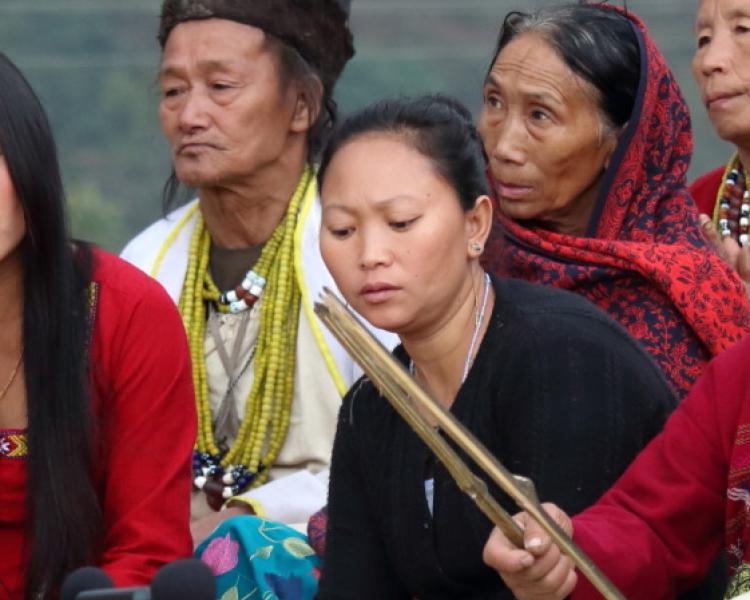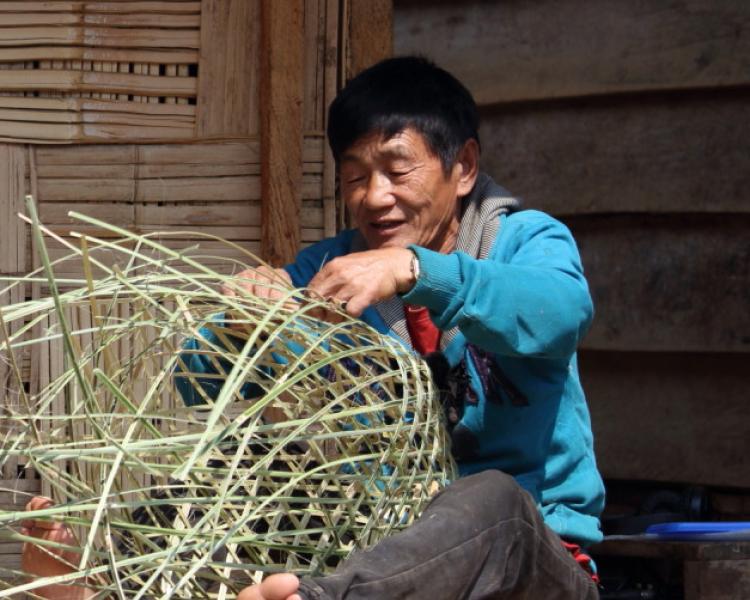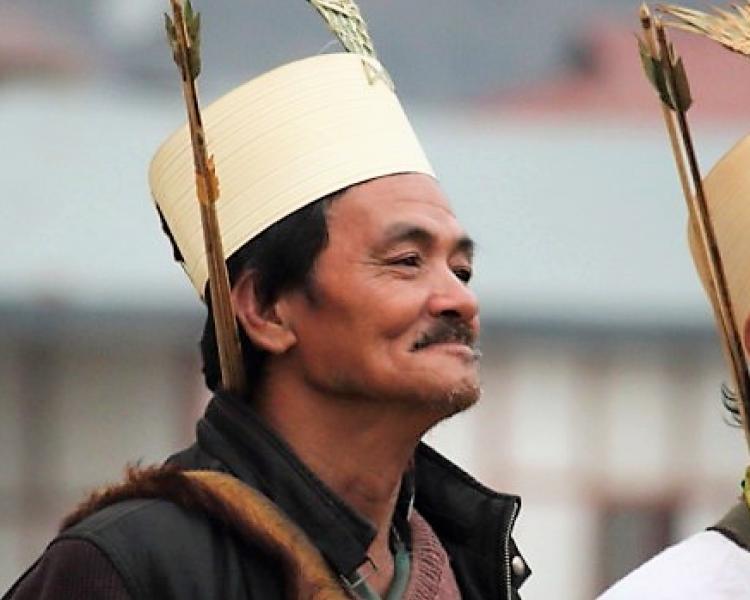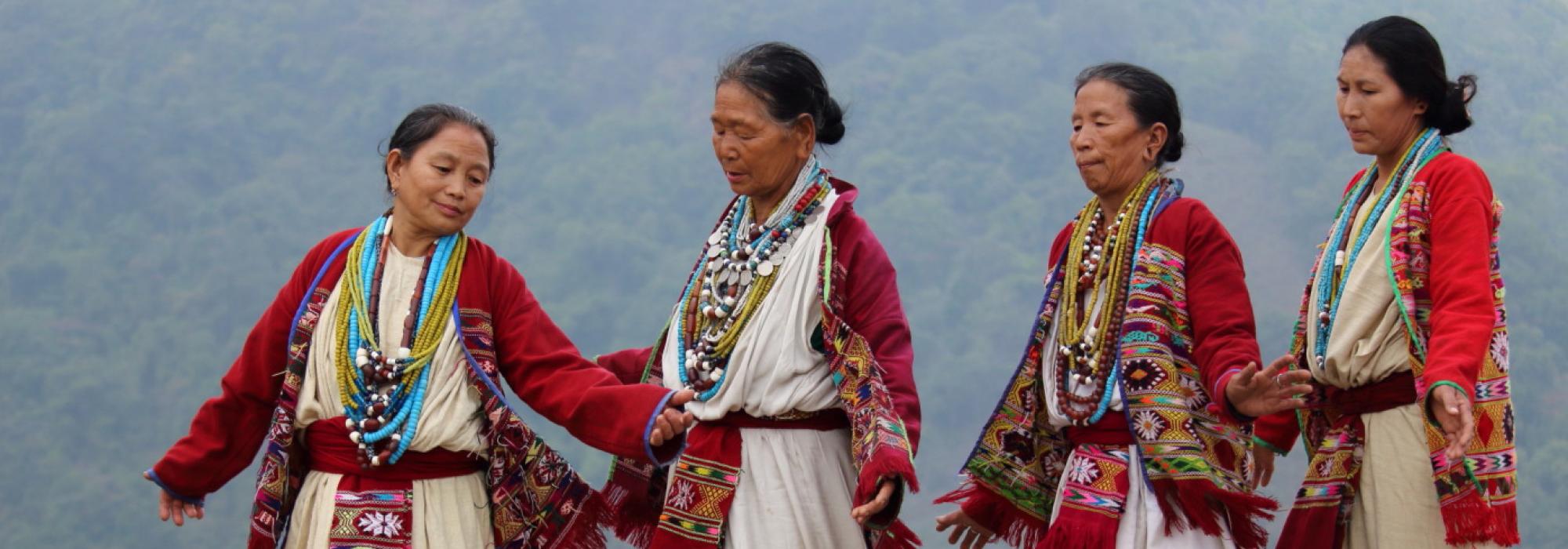
Transdisciplinary Dialogues Series: Endangered Tribal Languages in India (1)
Key Details
Seminar 1: Exploring ethical frameworks for valuing endangered languages
Our first seminar, held in October 2022, was entitled: Exploring Ethical Frameworks for Valuing Endangered Languages.
The seminar raised the question of determining the value of minority languages spoken by less than 10,000 speakers in the world and the purpose of preserving these when they are endangered. The seminar addressed these concerns and the ethics of conservation with a special focus on Northeast India.
Speakers:
- Dr Vijay D’Souza (NEILAC);
- Dr. Ambika Aiyadurai (Indian Institute of Technology, Gandhinagar);
- Dr Sarah Ogilvie (University of Oxford);
- Dr Tim Howles (LSRI, Campion Hall, University of Oxford), Chair
Visual Map of the Dialogue:
The seminar was a dialogue between the three speakers who have worked extensively with indigenous communities, endangered languages, and biodiversity conservation in different parts of the world.
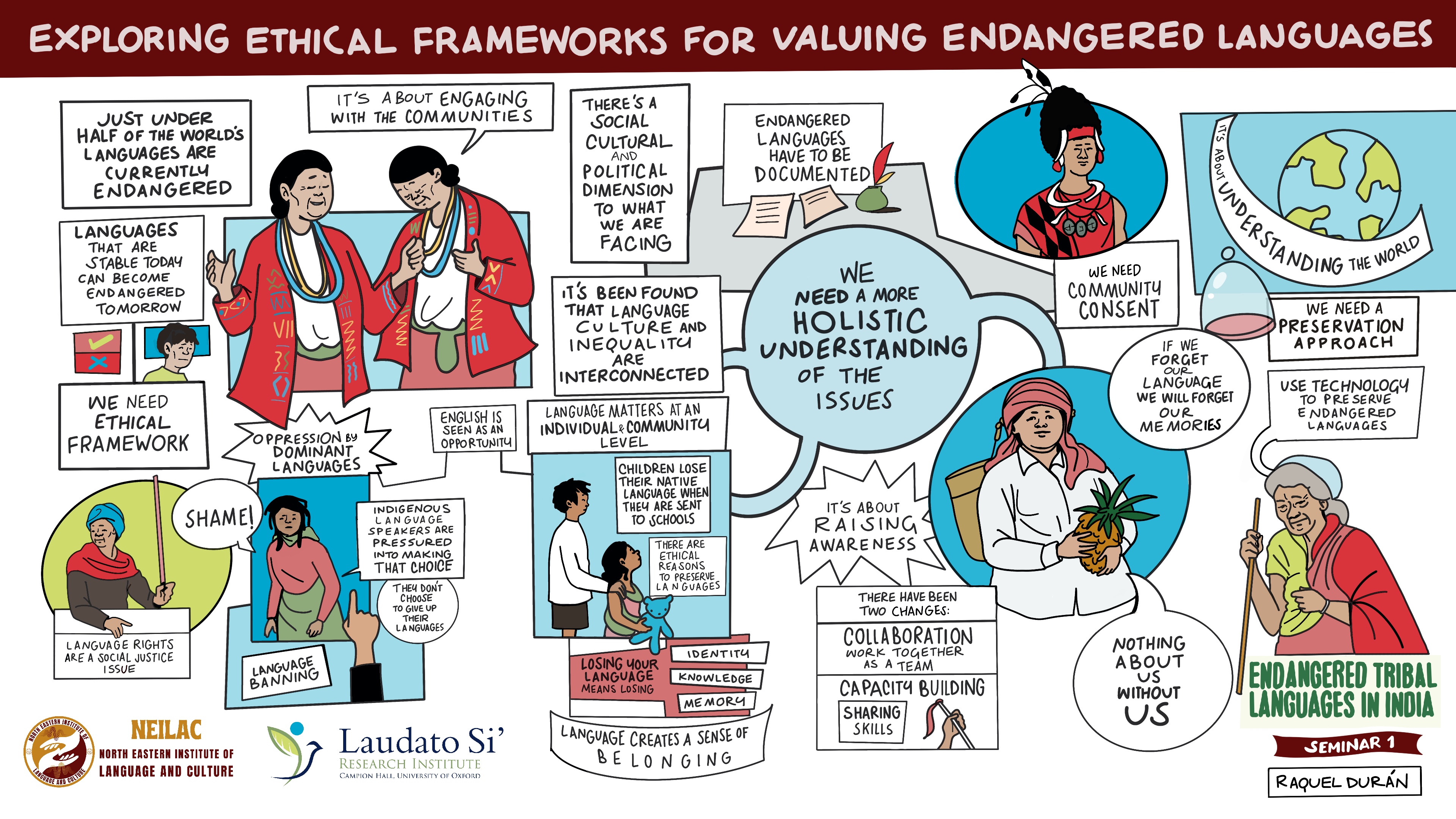
Summary of the Dialogue:
The first speaker was Dr Vijay D’Souza, Director of the North Eastern Institute of Language and Culture in India. Vijay shared his experience of working with the Hrusso Aka community of Arunachal Pradesh for more than two decades. He highlighted the impact of Hindi and English on the mother tongue. Most of the indigenous communities in this region are not keen to learn their mother tongue because they feel without English or Hindi they will not have a secure future. He highlighted how minority languages are oppressed by socio-economically powerful languages and how this leads to language endangerment and marginalisation. He also spoke about the trauma associated with language loss and language shaming on individuals, and how this can create a negative attitude towards the mother tongue. He addressed the importance of language revitalization (only with the consent of the community itself) and how it is important to respectfully accompany them in the revival of their language and culture. He referred to it as RAME (Respectful Accompaniment for Mutual Empowerment). He presented the Hrusso Aka language as a case study of revitalization and discussed the extensive work carried out in this respect by himself and by community members. They have together created an orthography of Hrusso Aka, published storybooks, textbooks, a mobile dictionary app, a weekly news channel and other items. These and other such initiatives are helping in the successful revival of the Hrusso Aka language.
Dr Ambika Aiyadurai, Assistant Professor in Humanities and Social Sciences at IIT Gandhingar, then continued the dialogue by recounting her own experience of going to an English medium school that prohibited speaking one’s own mother tongue. She talked about the increasing importance of English for indigenous communities in this region in order to meet global standards in education and employment. But adapting to English has come at the cost of their own ancestral language. So there should be a balance between use of the mother tongue and use of socio-economically empowered languages. She described her decade-long work with the Idu Mishmi tribe of Arunachal Pradesh. She highlighted how methods of wildlife and environmental conservation have always taken place without consulting the local communities; there is a risk that the same thing could happen with the preservation of endangered languages. Conservation strategies have been species-centric and not ecology-centric, where humans, animals and forests are seen as one integral whole. Therefore, there is a need to change the strategies from an anthropocentric to a more holistic cosmo-centric worldview. She agreed that working together with indigenous communities is the most important thing to consider in conservation efforts, whether these relate to endangered languages or endangered species.
Dr Sarah Ogilvie, Senior Research Fellow in the Faculty of Linguistics, Philology and Phonetics and of Campion Hall, University of Oxford, then joined the dialogue as the third speaker. She highlighted the fact that the attitudes of political elites towards indigenous languages is often similar throughout the world. However, awareness of the indigenous communities in Australia is more widespread. She mentioned an indigenous community member saying: “nothing about us without us”, implying that community members should have the right to decide for themselves.
At the end of the seminar, there were several important questions raised by the audience. One of these was on how we decide which script is best for the community. All the speakers had a similar response to the question. They said that the decision must be made by the community and not by the government or the researchers. They said that there is no good or bad script in the sense that one script is foreign and another one is native. It is not important which script one chooses, but what works best for the community.


